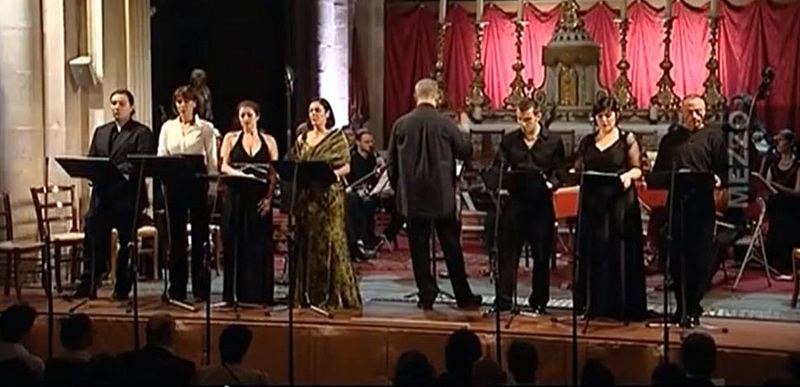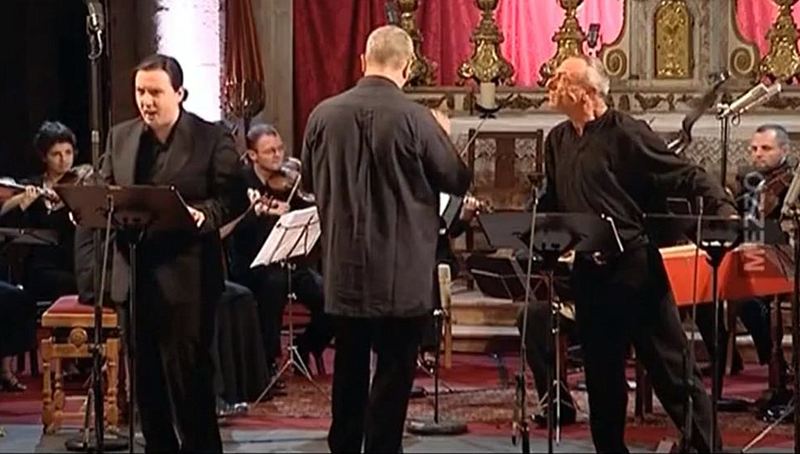Domenico Scarlatti (1685 – 1757) is nowadays mainly known for his 555 keyboard sonatas. Click here for a nice collection. His father Alessandro specialised in operas (114!) and that may have been a reason that young Domenico wrote one himself, in 1703 when he was 18 years old.
Here is the opera L’Ottavia restituita al Trono (Octavia returned to the throne).
Pleasing music, fresh and youthful. It is a concertante recording, seven singers, no stage, no choir.
I listened several times to the recording, trying to understand the “plot”with the help of the (French) subtitles.
The main characters are Nero, Octavia and Poppaea. Nero, Emperor of Rome is sung by a countertenor. Octavia, his divorced wife and Poppaea, his future bride , are both sung by sopranos.

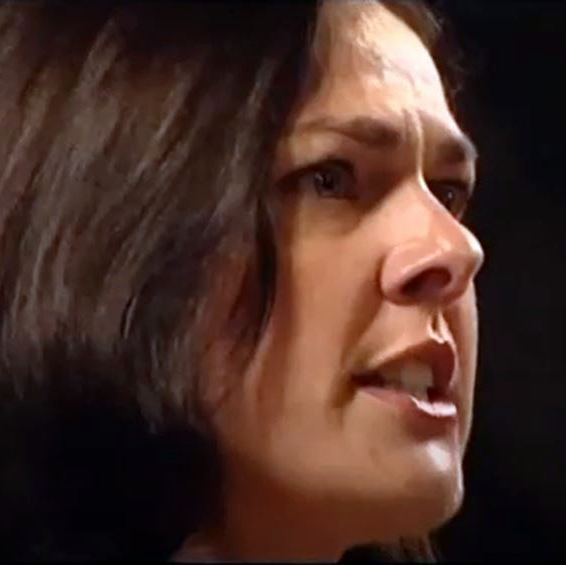
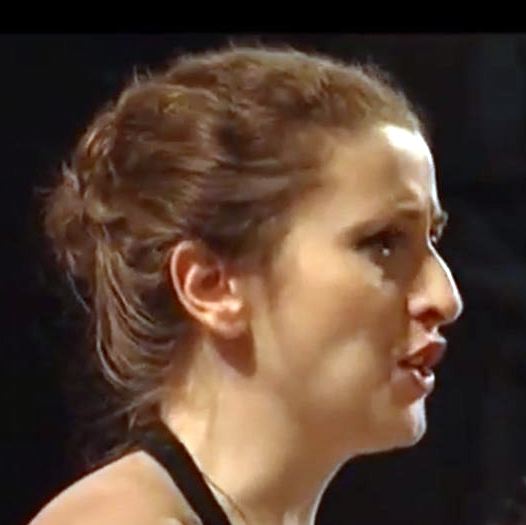
Floro is a Prince of Epirus and Rosilda his wife/bride. They were shipwrecked and got separated. Both are sung by sopranos (Floro in travesti)
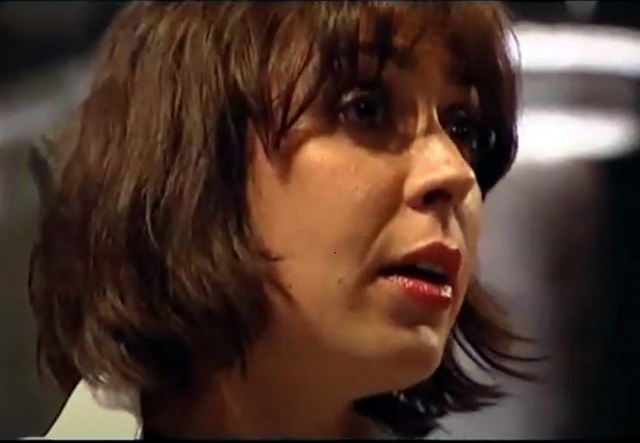
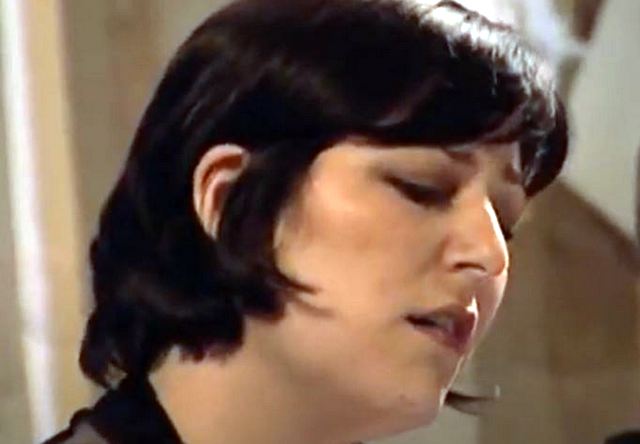
Two supporting roles. Dorillo is a young servant of Floro, sung by a sopranist (a male soprano). And Belisa, an elderly female, is sung by a tenor!

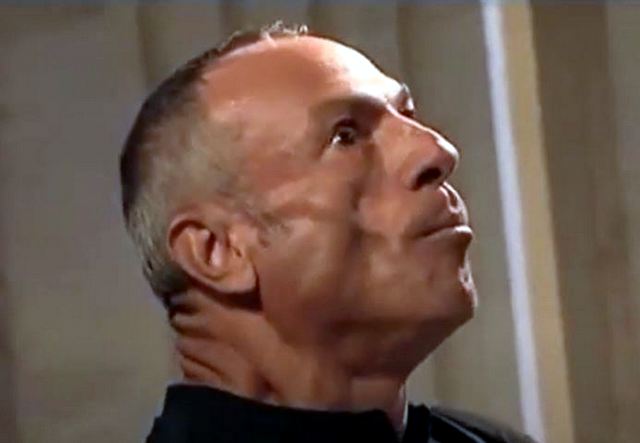
So the three male parts, Nero, Floro and Dorillo, are performed by a countertenor, a soprano and a sopranist, whereas the female role of Belisa is sung by a tenor. No wonder that at first hearing I was confused.
The first performance of the opera took place in November 1703 in Naples. Apparently the work received a favorable reception, but later it has fallen into complete oblivion until recently. The original libretto has been preserved, but the music was thought to be lost, until copies of almost all arias were found in the library of the Naples Conservatory. Based on this material, two Italian musicologists, Antonio Florio and Alessandro Ciccolini, have made a reconstruction of the opera. It was performed in 2007, with Antonio Florio himself conducting.
Before giving a summary of the opera , here is some historical background.
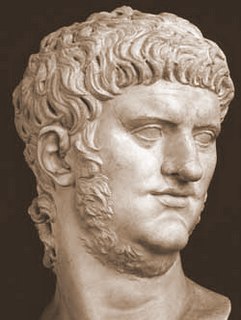
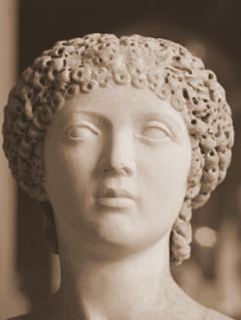
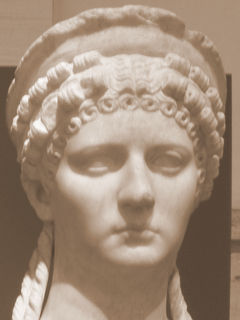
Nero, Octavia and Poppaea are historical characters during the Roman empire. Nero was born in 37 AD and married Claudia Octavia in 53 AD when he was 16 years old and she 14. One year later , at the age of 17, he became Emperor of the Roman Empire. Octavia became Empress and was widely respected by the Roman citizen body. But their marriage was unhappy and Nero soon got mistresses. One of them was Poppaea Sabina, seven years his senior, and an ambitious schemer. When she became pregnant in AD 62 he divorced Octavia and almost immediately married Poppaea. Octavia was banned to the island of Pandateria. The citizens of Rome protested so strongly that Nero almost remarried Octavia, but instead he decided, supported (urged?) by Poppaea, that she should be killed. She was 23 years old and, according to the historian Tacitus, she was decapitated. In this painting (Giovanni Muzzioli – 1876 ) Poppaea presents Octavia’s head to Nero.
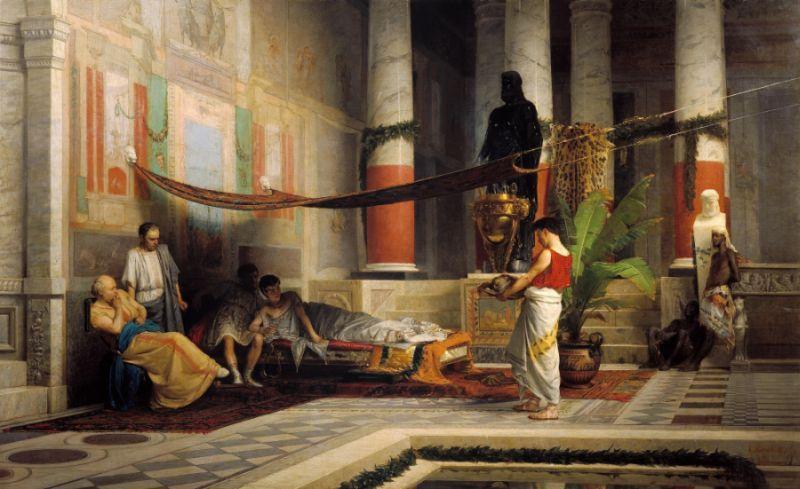
From the title “Octavia returned to the throne” , you may guess already that the content of Scarlatti’s opera is not historically accurate. The opera consist of three acts, although in the recording there is no interval between them.
———————————————–
Act I
Octavia is back in Rome, disguised as a shepherdess and planning revenge against Poppaea. Nero is going to get married to Poppaea, but also charmed by every nice lady he meets. And Poppaea loves Nero, but she is concerned about the negative reaction of the Roman people and willing to give up her position as empress.
Floro tells Nero about his shipwreck and is appointed as captain of the army. Belisa introduces Rosilda to Nero who is charmed by her beauty, much to Poppaea’s concern. Floro recognises Rosilda and is worried too about Nero’s avances. He decides to hide his identity to Rosilda and “become” Clearque . The act ends with a hilarious duet between Belisa and Dorillo. Belisa fancies Dorillo, who is not interested. Click on the picture to hear the duet.
———————————————–
Act II
Nero and Clearque meet a shepherdess, not realising it is Octavia. She tells Nero her sad fate and that she is looking for revenge. Nero is charmed by her beauty and tells Clearque that it is no problem to love more than one. He tells the same to Poppaea, who is furious about his interest in Rosilda. When Nero meets Rosilda, he tries to flirt with her. She resists and asks Clearque to help her.
Octavia is ready to take her revenge on Poppaea, who is complaining and sad about what is happening. When she falls asleep, Octavia prepares to kill her, but Nero arrives in time to prevent it. Octavia flees and Poppaea blames Nero, who promises to find and punish the shepherdess.
Clearque finds Octavia and after he discovers that they both have a grudge against Nero, he decides to help her. This act ends with another funny duet between Dorillo and Belisa. Click on the picture for the duet.
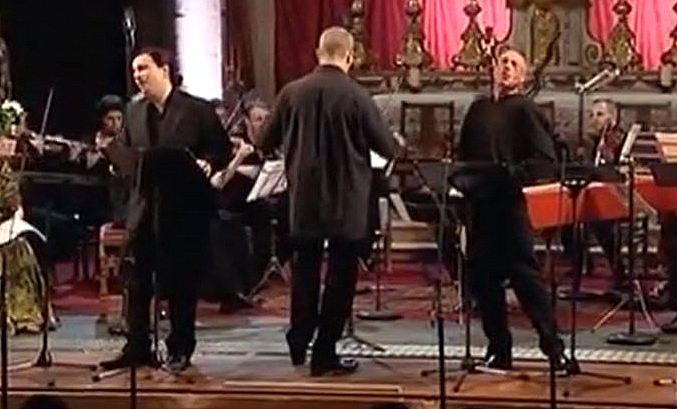
———————————————–
Act III
Octavia tells Clearque who she is and tells him that he can help her by raising the anger of the people and tell Nero that the only solution is to take back Octavia. Later she meets Belisa, who is looking for Dorillo, and also tells her who she is, asking Belisa for help. Belisa advises Octavia to hide in a garden where Poppaea and Nero will meet.
In the garden Octavia attacks Poppaea, Poppaea defends herself, and again Nero arrives in time. Clearque tells Nero that the people are revolting and want his death unless he takes back Octavia back on the throne. Nero laments that, still loving Poppaea, he has to give her up. Poppaea says that she will give up her position.
Clearque is finally convinced of Rosilda’s faithfulness and reveals to her that he is actually Floro. Both are happy. Nero asks Floro to call Octavia, he apologises to her for his behaviour. She suggest that he go back to Poppaea, but Floro says again that the people want her back. Then she accepts to come back to Nero, for the love of the country , although he is not worth it. Poppaea is not jealous and Octavia forgives her. Finally all (including Poppaea !) sing about the triumph of the God of Love.
———————————————–
When you have read the above summary of the opera, I think you will agree with me that there is hardly anything in it that is historically correct. Yes, the fear of Nero for a revolt of the people. What I found surprising is that Poppaea, considered by most historians as an ambitious, ruthless schemer , is here portrayed as being considerate, genuinely in love with Nero, whereas it is Octavia who , by hook and by crook, wants to get back her position as empress. Nero comes across as a womanizer who is ultimately only interested in his own survival.
A few more comments
- The (infamous) Nero period of the Roman Empire must have fascinated composers. In 1643, Monteverdi wrote the opera L’incoronazione di Poppea (The Coronation of Poppaea), based more or less on the historical events. This opera is performed regularly, here is a beautiful recording by the Monteverdi Choir. And in 1704 Handel wrote the opera Nero, the music of which has been lost, only the libretto survived.
- Bach, Handel and Scarlatti were all three born in 1685. Bach never wrote an opera, Scarlatti only a few, Handel about fifty! In 1709 he wrote the opera Agrippina about Nero’s mother. Here is a brilliant modern recording by an American ensemble Ars Lyrica Houston
- Almost no information exists on the Internet about Scarlatti’s opera. Finally I found this useful link: OTTAVIA, 300 anni fa… It is written in Italian, I needed Google Translate 😉 As far as I know only one recording of the opera exists on YouTube, I found two arias, not related to this recording, a duet between Poppaea and Nero and an aria by Belisa That’s all.
- A bit more history. Nero murdered Agrippina in 59 AD. And in 65 AD, in a fit of rage, he trampled on the belly of pregnant Poppaea, killing her. Nero went in deep mourning and two years later married the boy Sporus, who resembled Poppaea, after having him castrated. Nero committed suicide in 68 AD , 31 year old.
It was a real pleasure, although time consuming, to find out more about this delightful “little” opera. Hopefully it will be performed more often.

